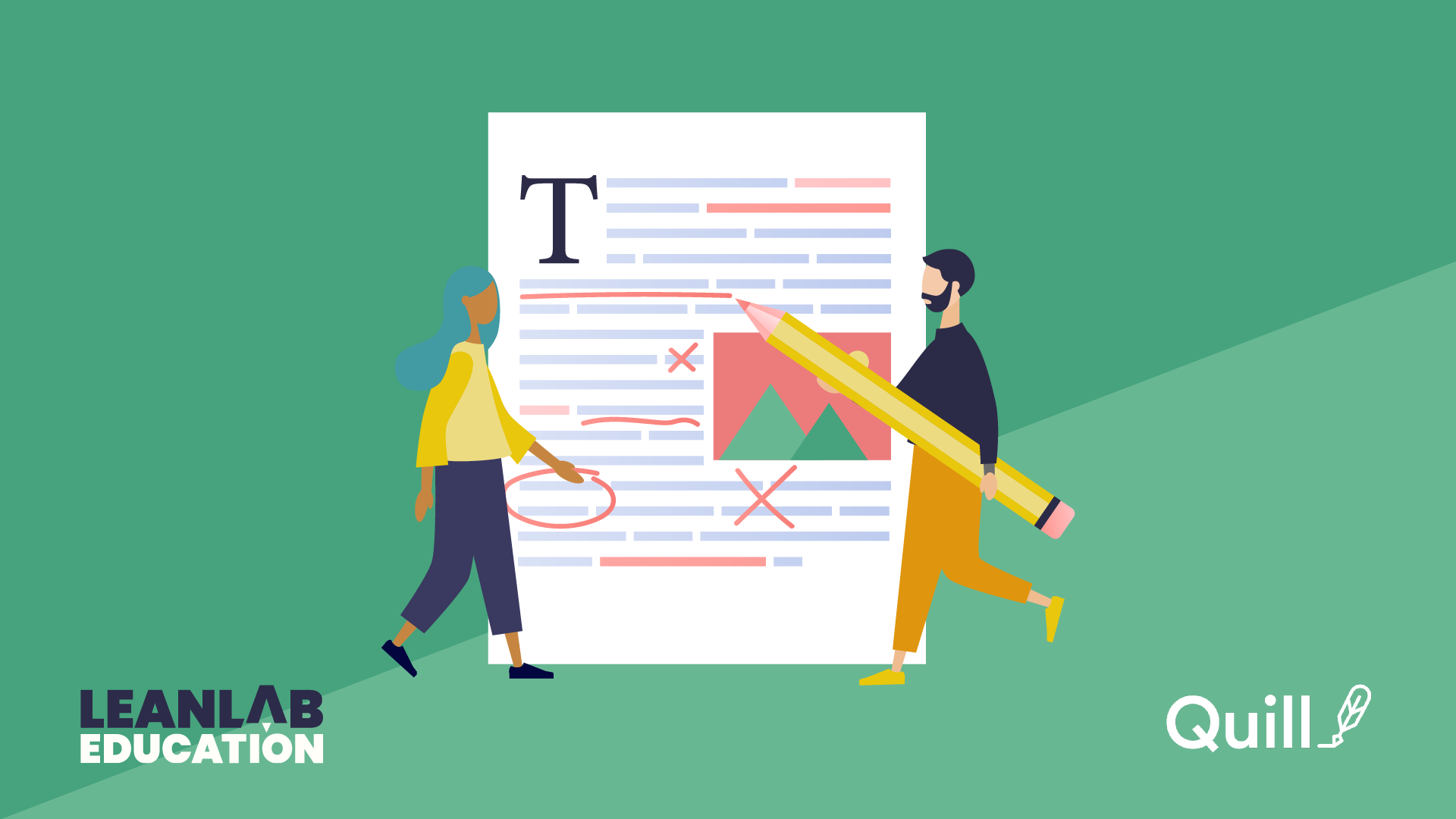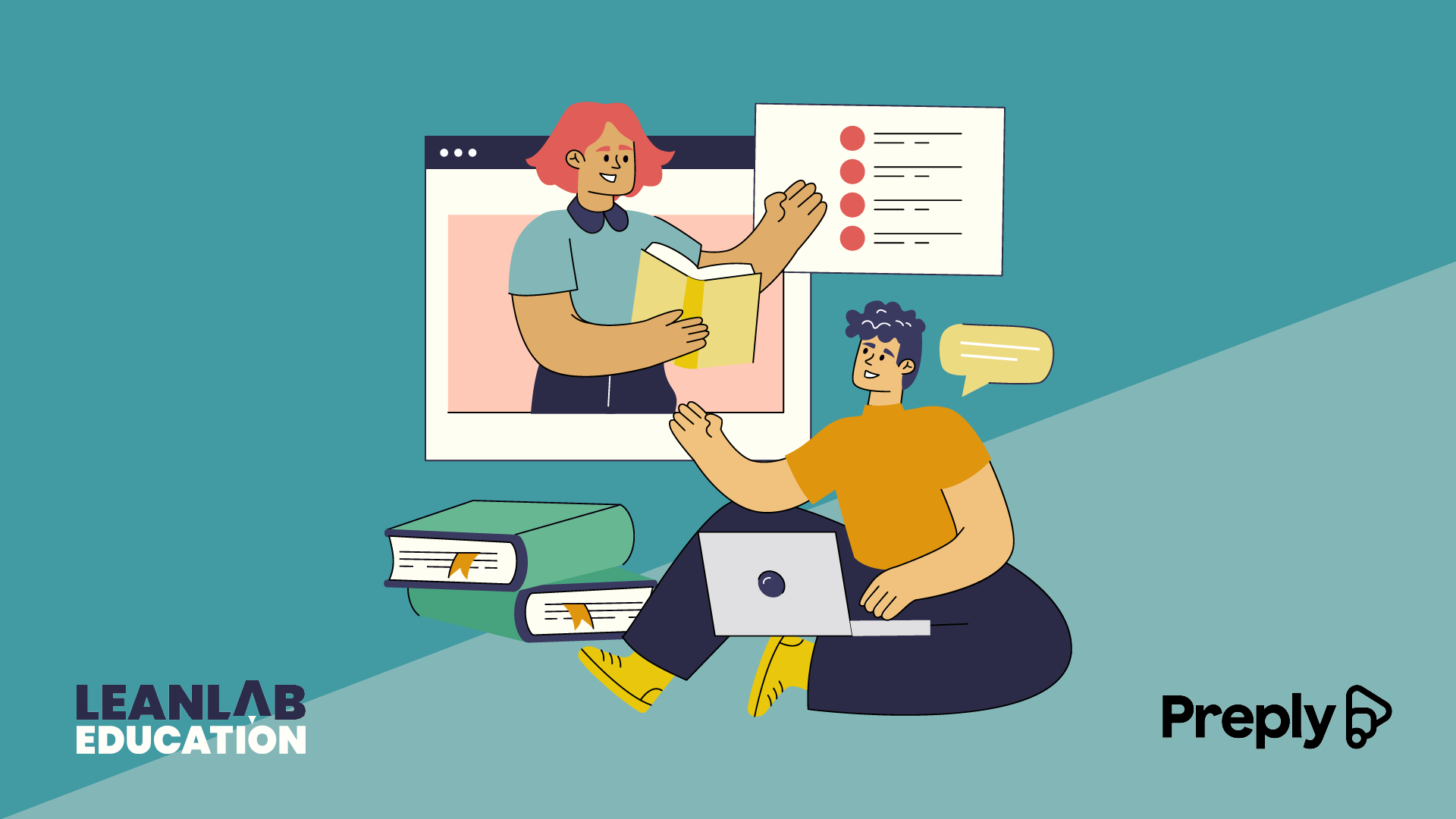Does consistent use of Quill.org translate into measurable improvements in student writing skills? Quill enlisted Leanlab to examine this question through a large-scale, post-hoc study tracking outcomes for over 100,000 students across 2,600 schools.
From Confidence to Career Growth: Findings from Our Research with Preply
For adult English language learners working to improve their English skills and confidence for professional reasons, how effective is one-on-one online language tutoring? This question was central to a 2025 research partnership between Leanlab Education and Preply, a global language learning platform.
Understanding What Works in GenAI Math Tutoring
Bending the Market: Reflections on Edtech Testbeds
Seismic shifts in the federal policy landscape and the progression of AI have left our education research and edtech communities bobbing, weaving, and strategy-refreshing our way through 2025. It’s within this context that Leanlab CEO Katie Boody Adorno returns to this 2023 piece. She reflects on how much has changed in the education landscape since then, how prescient some of her predictions proved to be, and how urgent others have become.
Celebrating Excellence: Codesign and ESSA Badge Recipients
Leanlab Education recognizes companies that demonstrate commitment to research-based practices and user-centered design through our badge programs. This spring and summer we awarded badges to companies that have shown dedication to evidence-based development and meaningful user feedback integration.
Building Bridges: How Collaborative State and Regional Innovation Hubs Can Reshape Education R&D
The traditional landscape of education innovation often feels siloed. Researchers conduct studies, edtech startups build tools, investors inject capital, and educators are left at the tail end, hoping something works for their students. This incoherent marketplace, where solutions often lack substantial evidence of their effectiveness and are built without a deep understanding of the problems, was the central challenge addressed during the session “Uncovering the Hidden Gems: A State and Regional Deep Dive into R&D” at this year’s ISTELive and ASCD Annual Conference with Advanced Education Research and Development Fund (AERDF), Leanlab Education, Learner-Centered Collaborative, Alliance for Learning Innovation (ALI), and InnovateEDU.
New research: Adobe Express for Education sparks student engagement and creativity
Leanlab Education at ISTELive 25
Can Regional Innovation Hubs Create a More Promising Future for K-12 Education?
With uncertainty across the educational landscape—the expiration of ESSER funds and shrinking public school district budgets, cuts to federally funded research initiatives, and opportunities and challenges around AI integration—we need to understand where, when, and how to create systems that support and sustain learner-centered change no matter what comes next.
Connecting with Users in a Shifting Edtech Market
Breaking into the US Edtech Market
Navigating the US education system is no small feat, especially for new or international edtech companies unfamiliar with its complexities. Leanlab Education’s Director of Edtech Partnerships Andy Midgette outlines key pathways to entering the US edtech market in a new video.
Humans in the Loop: Insights from Codesigning AI in Real Classrooms
With the explosion of AI in education since ChatGPT’s release in November 2022, the edtech market has seen an influx of tools promising revolutionary changes to teaching and learning. But are these tools meeting real classroom needs? Leanlab Education set out to answer this question by working with five edtech companies, each developing AI-powered solutions, through codesign research involving over 40 teachers and their students across the U.S.
Try It. Use It. Study It.
Educators and students are the source of truth on the classroom experience, and they hold invaluable knowledge as the end users of many edtech products. Leanlab Education’s research taps into their expertise by bringing together innovative educators and school districts to collaborate with edtech companies seeking to solve real problems in education.
A Year To Refocus on Community Wellbeing
When things got crazy in the early days of the pandemic, we started doing daily video calls with school leaders. While convening the education community has always been a core principle for us, we knew we needed to get in the trenches on a daily basis given the gravity of the situation that was unfolding.
The goal? To help them figure things out and plan. We pressed pause on our playbook and focused on core needs.
Over the last 8 months, we’ve listened directly to our region’s schools and families, and our nation’s education innovators. As always, we’ve held steadfast to the belief that those closest to education-- parents, students, teachers--are the experts.
True to our core values of human-centered design and boldness, we leaned in to understand their insights to provide direct support when our communities needed it most.
Even though it was a different direction for us, we prioritized basic needs and then we looked ahead at traditional school matters. While we’re not a direct service organization, we knew we had to pivot. We did it the LEANLAB way:
We used research and data.
We served as a convener for our community schools.
We looked to the greatest needs to drive our actions.
Those early calls helped us understand the dynamic needs coming up for schools. Those calls moved us toward the connectivity work for which we might not have otherwise seen the need.
We knew our community was counting on us to shift resources and reconfigure priorities so that’s what we did. It wasn’t perfect. It was messy. We didn’t get everything right.
But we listened. We responded. We took in the data and acted on it--arm-in-arm with our partners.
As a result, thousands of Kansas City kids got connected to the internet and were able to access educational services.
I’m someone whose entire career depends on the ability to connect and communicate. I know first-hand how crucial those skills are for our kids’ future success. I’m honored we could deliver on that promise this year.
Sincerely,
2020 Letter From The CEO
LEANLAB Education Helps Local Charter Schools Secure $460k in Funding for Connectivity in Covid-19 Response
How Do We Learn if Ed Innovations Really Work?
How do you learn whether music lessons can increase social-emotional learning; if inquiry-based learning can increase student engagement; or if an app can increase a student's STEM awareness? The entrepreneurs in our program worked diligently last year in concert with educators at our pilot sites to find out.











